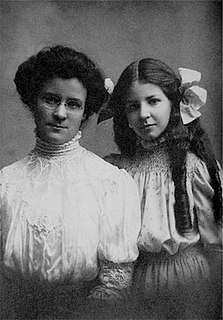Top 32 Introversion Quotes & Sayings
Explore popular Introversion quotes.
Last updated on April 15, 2025.
We don’t ask why God chose as his prophet a stutterer with a public speaking phobia. But we should. The book of Exodus is short on explication, but its stories suggest that introversion plays yin to the yang of extroversion; that the medium is not always the message; and that people followed Moses because his words were thoughtful, not because he spoke them well.
Often confused with shyness, introversion does not imply social reticence or discomfort. Rather than being averse to social engagement, introverts become overwhelmed by too much of it, which explains why the introvert is ready to leave a party after an hour and the extravert gains steam as the night goes on.
[On Jung's theory of psychological types:] My mother, Katharine C. Briggs, introduced it into our family and made it a part of our lives. She and I waited a long time for someone to devise an instrument that would reflect not only one's preference for extraversion or introversion but one's preferred kind of perception and judgment as well. In the summer of 1942 we undertook to do it ourselves.
Originally, technology was pretty clearly on the side of introversion. It allowed introverts to connect with people, to express their ideas in a less stimulating way: you're sitting alone behind a computer. But I'm starting to think that the pressure to self-present constantly online is becoming so extreme.
The physical basis for sociopathy is approximately 50 percent inheritable, which sounds more dramatic than it probably is, because most personality characteristics that psychologists test for and study the genetics of are about 50 percent inheritable. Introversion, extroversion, it turns out that they're about 50 percent inheritable, which means that somehow sociopathy is physical, it's organic.
While there are relatively few extreme introverts or extroverts, most of us lean in one direction or the other. If we lean more toward introversion, we'll generally prefer less social activity than more extroverted people. One inclination is not 'better' than another, but our culture can make it seem as if extroverts have a social advantage.
Introversion- along with its cousins sensitivity, seriousness, and shyness- is now a second-class personality trait, somewhere between a disappointment and a pathology. Introverts living in the Extrovert Ideal are like women in a man's world, discounted because of a trait that goes to the core of who they are. Extroversion is an enormously appealing personality style, but we've turned it into an oppressive standard to which most of us feel we must conform.
The end of the world: the wholesale internal introversion upon itself of the noosphere, which has simultaneously reached the uttermost limit of its complexity and its centrality . . . the overthrow of equilibrium, detaching the mind, furfilled at last, from its material matrix, so that it will henceforth rest with all its weight on God-Omega . . . critical point simultaneously of emergence and emersion, of maturation and evasion.
To a greater or lesser extent there goes on in every person a struggle between two forces: the longing for privacy and the urge to go places: the introversion, interest directed within oneself toward one's own inner life of vigorous thought and fancy; and extroversion, interest directed outward, toward the external world of people and tangible values.













